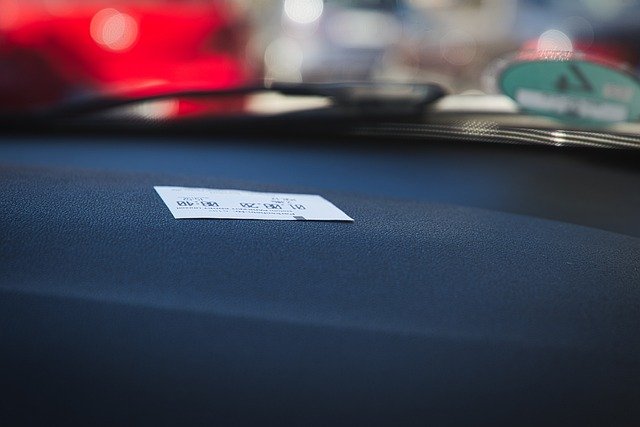The Practical Guide to Buying Affordable Vehicles at Police Impound Auctions
Police impound auctions have become a practical source for those exploring budget-conscious ways to acquire vehicles. These lots often include cars that were abandoned, towed, or involved in legal issues, and are resold as-is. While pricing may be appealing, understanding how these auctions work, what types of vehicles are available, and how buyers evaluate condition and costs is essential. This guide outlines key considerations people review when approaching impounded vehicle auctions, from researching vehicle history to factoring in ownership costs often overlooked at first glance.

What are police impound auctions and how do they work?
Police impound auctions are events where law enforcement agencies sell vehicles that have been seized, abandoned, or repossessed. These auctions can be conducted in-person or online, offering a wide range of vehicles at potentially lower prices than traditional used car dealerships. The auction process typically involves bidding on vehicles, with the highest bidder winning the right to purchase the car. It’s important to note that these auctions often sell vehicles “as is,” meaning buyers are responsible for any repairs or issues that may arise after the purchase.
Where can you find information about upcoming impound auctions?
Finding information about police impound auctions requires some research, but there are several resources available. Many law enforcement agencies post auction details on their official websites or social media pages. Additionally, there are websites and platforms dedicated to listing used car auctions across the country. Local newspapers and community bulletin boards may also advertise upcoming auctions. Some online platforms even allow you to buy cars online from various auctions, making it easier to participate from anywhere.
What types of vehicles are typically available at impound auctions?
Impound auctions offer a diverse range of vehicles, from everyday commuter cars to luxury vehicles and even specialty equipment. You might find sedans, SUVs, trucks, motorcycles, and sometimes boats or recreational vehicles. The condition of these vehicles can vary greatly, from nearly new to severely damaged. It’s not uncommon to find both high-end vehicles seized in criminal investigations and older models that have been abandoned or impounded due to parking violations.
How can you research a vehicle’s history before bidding?
Before bidding on any vehicle at an impound auction, it’s crucial to research its history. This step is particularly important because most auction vehicles are sold “as is” without warranties. Obtaining a vehicle history report is an essential part of this process. These reports can provide valuable information about a car’s past, including accidents, maintenance records, and ownership history. Many online services offer vehicle history reports for a fee, using the vehicle identification number (VIN). Additionally, some auction houses may provide basic information about the vehicle’s condition or known issues.
What are the potential risks and benefits of buying from impound auctions?
Buying a vehicle from a police impound auction can offer significant benefits, primarily in terms of cost savings. Many vehicles are sold at prices well below their market value, providing an opportunity to purchase a car that might otherwise be out of budget. However, these savings come with potential risks. The “as is” nature of most auction sales means buyers have limited recourse if problems arise after purchase. There’s also the risk of buying a vehicle with hidden damage or mechanical issues that may not be immediately apparent. On the positive side, impound auctions can be an excellent source for rare or unique vehicles that might not be readily available through traditional channels.
What steps should you take to prepare for and participate in an auction?
Preparing for a police impound auction requires careful planning and research. First, familiarize yourself with the auction rules and procedures, which can vary depending on the agency or platform hosting the event. Set a budget and stick to it, accounting not just for the purchase price but also for potential repair costs and registration fees. If possible, attend an auction as an observer before participating to get a feel for the process. For online auctions, carefully review all available photos and information about the vehicles you’re interested in. On auction day, arrive early to inspect vehicles if allowed, and bring any necessary documentation and payment methods as specified by the auction rules.
How do costs and pricing work at police impound auctions?
Understanding the cost structure of police impound auctions is crucial for potential buyers. While these auctions often offer vehicles at lower prices compared to traditional dealerships, there are several factors to consider when evaluating the total cost of ownership.
| Cost Factor | Description | Typical Range |
|---|---|---|
| Auction Price | The winning bid amount | $500 - $10,000+ |
| Buyer’s Premium | Fee charged by the auction house | 5% - 10% of winning bid |
| Registration Fees | Costs to register and title the vehicle | $50 - $300 |
| Potential Repairs | Estimated costs for necessary repairs | $0 - $5,000+ |
| Transportation | Costs to transport the vehicle if non-operational | $50 - $500 |
Prices, rates, or cost estimates mentioned in this article are based on the latest available information but may change over time. Independent research is advised before making financial decisions.
When budgeting for a vehicle at a police impound auction, it’s essential to factor in all these potential costs. The auction price is just the starting point; buyers must be prepared for additional fees and potential repair costs. Some auctions may require immediate payment and vehicle removal, so having funds readily available is crucial.
While the initial purchase price at an impound auction can be significantly lower than retail prices, the total cost of ownership may increase if the vehicle requires extensive repairs or has hidden issues. It’s advisable to have a mechanic inspect the vehicle before bidding, if possible, or to set aside a contingency fund for potential repairs.
Despite these considerations, many buyers find that impound auctions offer excellent value, particularly for those willing to do some research and potentially invest in repairs. The key to success lies in thorough preparation, realistic expectations, and a clear understanding of the costs involved beyond the initial purchase price.
In conclusion, police impound auctions can be a valuable resource for finding affordable vehicles, but they require careful consideration and preparation. By understanding the auction process, researching vehicles thoroughly, and being aware of potential risks and costs, buyers can navigate these auctions successfully and potentially find great deals on used cars. Remember that while the upfront savings can be significant, it’s crucial to factor in all potential costs to ensure that your purchase truly represents good value in the long run.




